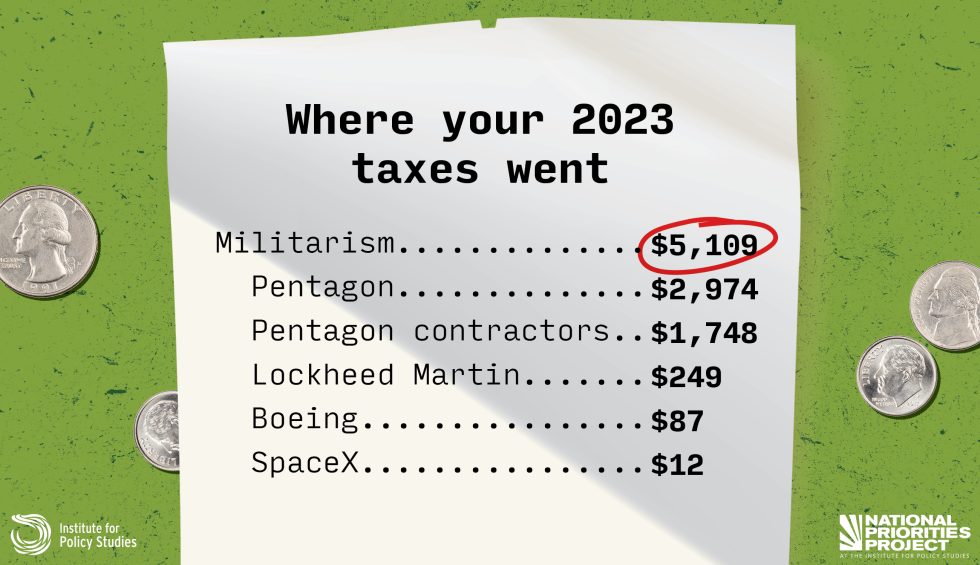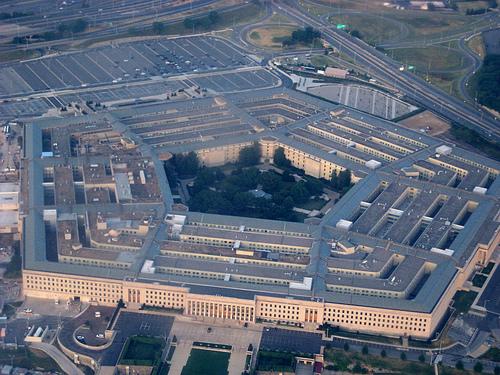
Last Year, You Spent More Than a Month’s Rent on Pentagon Contractors
A dollar by dollar look at how our taxes enrich military contractors — at the expense of things that actually make us secure.

A dollar by dollar look at how our taxes enrich military contractors — at the expense of things that actually make us secure.

The package includes $7.2 billion for direct military financing to Ukraine ($1.7 billion), Israel ($3.5 billion), and the Indo-Pacific ($2 billion).

Our tax dollars don’t have to be feeding executive-suite greed and grasping.

Some 8,000 U.S. contractors have died abroad since 9/11, compared to 7,000 U.S. troops.

As long as the top executives of our privatized war economy can reap unlimited rewards, the profit motive for war in Iran, or anywhere, will persist.

Lockheed Martin’s CEO took home $20 million while enlisted soldiers got just $20,000. Why? Because corporations have hijacked the military.

The U.S. federal budget is a cerebral subject, seemingly reserved for the technocratic elite to calculate, deconstruct, recompose, modify, and amend. But it affects people’s daily lives in profound ways, and not just in America.

Our analysis found that the average taxpayer put in 29 working days in 2017 to pay Pentagon contractors.

The Pentagon’s Office of Economic Adjustment mostly missed its chance to wean communities off America’s dependence on defense economics.

As funding for military contracts shrinks, major defense contractors have started to edge their way into the business of implementing health care reform.

A mountain of misleading rhetoric from big Pentagon contractors has buried the facts.

The powerful military contractor wants yet another government handout, and it has The Washington Post’s support.

There’s nothing in Montgomery County’s local, non-binding peace resolution about firing Lockheed’s employees or tossing any corporations into the Potomac River.

One county dared to stand up to the military-industrial complex. The complex has fought back.
The top 100 federal contractors have racked up more than $20 billion in fines, penalties, and restitution in hundreds of instances of fraud and other kinds of misbehavior since 1995.